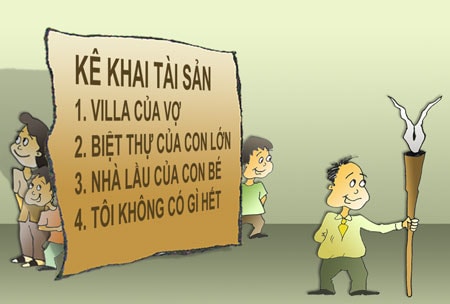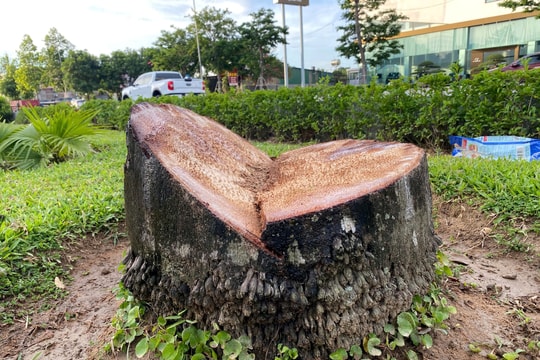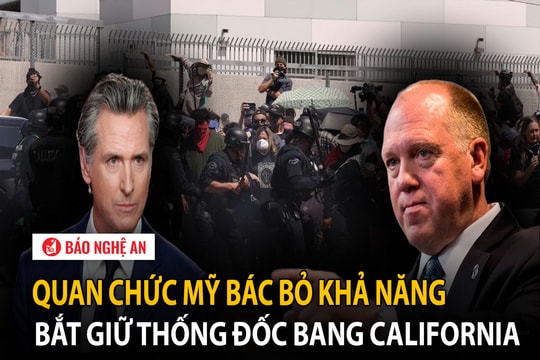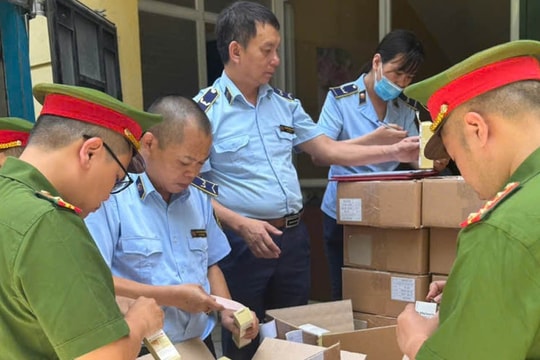Officials who cannot explain the origin of their unexplained assets will be sued in court.
According to the draft Law on Anti-Corruption (amended) which is being widely consulted, if civil servants and public employees are found to have actual assets and income greater than the declared assets and income, the agency or unit controlling assets and income can initiate a civil lawsuit at a competent Court to rule on the ownership of the difference in assets and income if it cannot reasonably explain.
 |
| (Illustration: Ngoc Diep) |
The Government Inspectorate believes that, in order to ensure accurate and honest declarations in order to more effectively control the assets and incomes of declarants, the draft Law on Anti-Corruption has expanded the basis for verifying assets and incomes compared to current regulations, including: When there are grounds for dishonest declarations or lack of reasonable explanations; when there are accusations about asset and income declarations; regulations on mandatory verification for those expected to be elected, appointed, assigned to hold positions and receive responsibility allowances of 0.9 or higher in order to build a team of honest cadres, civil servants, and public employees, or when the head of an agency, organization, or unit deems it necessary to verify the assets and incomes of those expected to be elected, appointed, assigned to hold positions and receive responsibility allowances of less than 0.9 in their agency, organization, or unit.
Handling of assets and income that are declared dishonestly and not explained properly is a new regulation proposed in the draft law to institutionalize the Party's direction on improving the effectiveness of recovering corrupt assets.
The results of handling assets and income declared dishonestly and not explained reasonably must be made public for the people to know.
While the mechanism for asset management and auditing of income and expenditure of the whole society has not been established, some countries have applied different methods of recovering corrupt assets such as criminalizing the act of illicit enrichment (currently 45 countries and territories apply this provision) and criminal recovery of assets, illicit income or civil recovery of corrupt assets...
The proposal of solutions for asset recovery in Vietnam needs to thoroughly grasp the policies and guidelines of the Party and State and be based on the principles of the rule of law, ensuring the rights of citizens and property ownership of individuals and organizations as stipulated in the Constitution and laws.
“Accordingly, the confiscation of corrupt assets can only be carried out when there is a court's legally effective criminal judgment or decision on the individual's corrupt behavior and the assets originating from that corrupt behavior,” the Government Inspectorate emphasized.
In addition, inheriting the provisions of the current Law, the draft has added provisions on cooperation in recovering corrupt assets to improve the effectiveness of recovering corrupt assets and improve the level of compliance with the United Nations Convention against Corruption. Accordingly, the Supreme People's Procuracy is assigned to be the national focal point in cooperating with foreign countries in recovering corrupt assets and presiding over the provision of information, receiving and processing requests from foreign agencies, organizations and individuals on recovering corrupt assets in Vietnam and receiving and processing requests from agencies, organizations and individuals in Vietnam on recovering corrupt assets abroad.
The draft law emphasizes the role of the National Assembly in preventing and combating corruption more highly than the current law when it stipulates the establishment of a temporary committee to investigate serious, complicated corruption cases that are of public concern. In addition, the Nationalities Council and the National Assembly Committees, within the scope of their duties and powers, supervise corruption prevention work in the fields under their responsibility. The National Assembly Judicial Committee, within the scope of its duties and powers, supervises the detection and handling of corrupt acts. |
According to Dan Tri




.jpg)
.jpeg)


